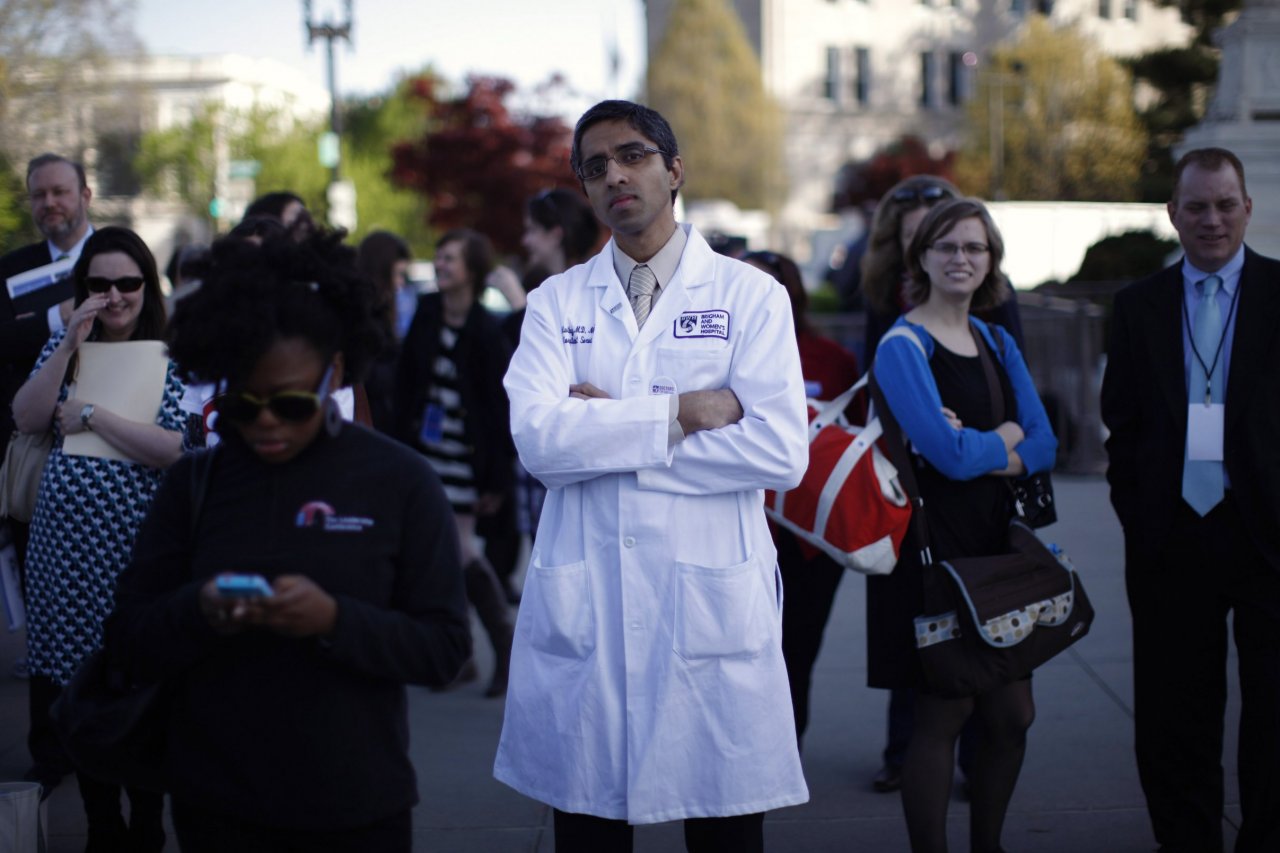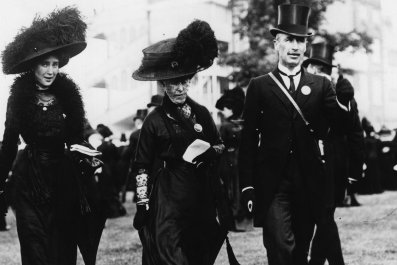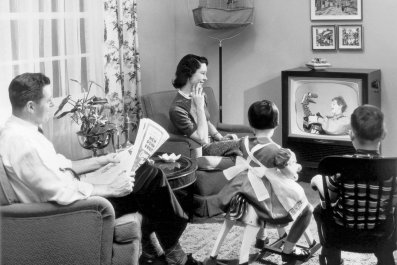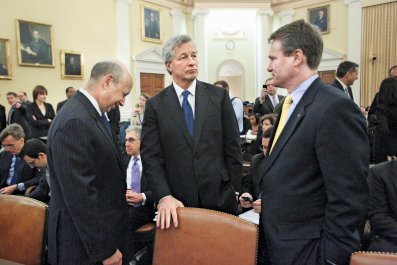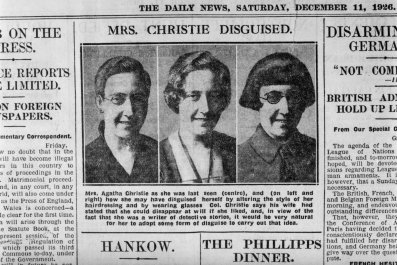There is no constitutional right to ignorance. When critics attack someone's opinion, it is not a violation of free speech. It is information communicated in the marketplace of ideas—what the First Amendment was intended to protect by prohibiting only government interference with speech.
Which brings us to the most over-inflated, spread-so-far-to-fit-any-belief principle in the Constitution: the right to keep and bear arms. Consider first what the Second Amendmentdoesn't say. There is no right to keep and bear any arms (one person insisted to me that he has a constitutional right to have an atomic bomb). There is no right to keep and bear arms accessories (high-capacity magazines and drums that can be used to shoot as many as 100 rounds are not protected by the Constitution). And there are many restrictions, based on societal interest, on who has this right to keep and bear arms (the mentally ill and convicted felons can be prohibited from having them).
And finally, there is no right to be stupid about guns.
This last fact is important today because of the inexcusable circumstances that led to the United States having no surgeon general in place to calm the recent national hysteria about Ebola. In a move that may well be unprecedented, Senate Republicans and assorted Democratic lickspittles have blocked President Barack Obama's selection for surgeon general—no, not a judgeship or a Cabinet position or an appointment that involves actual governmental power—because the nominee, Dr. Vivek Murthy, made a statement mildly critical of guns.
The usual blowhards blew hard in response. "Of course we should have a surgeon general in place," Senator Ted Cruz, Republican of Texas, said on CNN. "And we don't have one because President Obama, instead of nominating a health professional, he nominated someone who is an anti-gun activist.… Where he's made his name is as a crusader against Second Amendment rights, and as a consequence, he didn't have the votes."
Ted Cruz is lying. Murthy, 36, did not make his name as an anti-gun activist—in fact, virtually nothing in his career has any connection to guns. He co-founded a nonprofit organization in 1995 that focused on HIV and AIDS education in India and the United States. He has worked since 2006 as a doctor at one of the country's most prestigious medical institutions, Brigham and Women's Hospital at Harvard Medical School. He has a business involved in clinical trials, and he was co-founder of Doctors for America, a group of 16,000 doctors and medical students who work for access to quality health care for all Americans. He has published research in peer-reviewed medical journals.
Now, I'm not going to argue Murthy is the best-qualified candidate out there—despite his impressive résumé, there are certainly others with more credentials. But he is a reasonable nominee with plenty of accomplishments. So what provoked prevarications from folks like Cruz and other sycophants of the National Rifle Association? Murthy sent out a tweet saying guns presented a health care issue. That's it.
Somehow, this country has gotten to the point where merely suggesting guns are a major cause of visits to hospital emergency rooms or too frequently lead to injuries and deaths of children or generally cause health problems is an outrageous act. No, that can't be discussed, because gunners (as the NRA calls its gun nuts) think it violates their rights.
Murthy's statement of obvious fact, the one that set so much hair on fire on Capitol Hill, was muted in comparison to some of the positions taken by previous surgeons general. For example, in 1979 a surgeon general's report called Healthy People stated that the medical community could not ignore the consequences of violence to health; that was translated into a series of specific goals, including achieving substantial reductions in the number of handguns by 1990.
Gunners need to face facts, including this one: They are some of the biggest cowards in the country. They constantly tremble in fear that someone may break into their house or that the boogieman may point a machine gun at them at McDonald's or that the government may swoop down to take their guns.
They are so timid, so skittish, that they scream in horror when someone tells the truth. Guns kill people. Guns kill kids. Guns injure, maim, disfigure, cripple and generally cause this country to spend an obscene number of dollars on health care. So why are gunners so afraid to hear that guns are a health care issue?
Lawyers, judges and politicians—not a group commonly considered to be medical experts—have been weighing in of late, dictating what doctors can and cannot say to their patients about guns. In Florida, for example, the state legislature passed a bill that was signed into law by Governor Rick Scott that prevents doctors from asking their patients about firearms in the home.
The reason such questions are asked should be obvious. Families with small children and loaded weapons in the house might not know how to keep guns safe around kids. A suicidal patient might have a gun in the house. A person with significant rage problems might be armed. Doctors should never have the authority to take a gun away, but they should be able to counsel patients about life-threatening risks.
Doctors engage in that type of consultation all the time on other matters. Sex is a health care issue. So is drinking. And cars. And parachuting. Doctors talk about all of these issues and more in what is called the social history section of a medical exam. But now guns are off the table in Florida—the only element of a social history that cannot be legally discussed.
Doctors rose up in disgust about the Florida law because, you know, they're doctors. The Florida chapters of the American Academy of Pediatrics, the American Academy of Family Physicians, the American College of Physicians and an array of practitioners sought an injunction to prevent the enforcement of the law. This summer, the 11th U.S. Circuit Court of Appeals ruled 2–1 that, basically, judges—like politicians and lobbyists—know more about medicine than doctors do. Federal Judge Gerald Tjoflat declared that asking questions about guns is "irrelevant" to an appropriate review of one's medical history.
In his ruling, Tjoflat wrote that the law "seeks to protect patient's privacy by restricting irrelevant inquiry and record keeping by physicians regarding firearms.… [The Florida law] simply acknowledges that the practice of good medicine does not require interrogation about irrelevant, private matters."
Seriously? Who has ever been to a doctor and not been asked about private matters? That is a doctor's job. Regardless of Tjoflat's many accomplishments as a lawyer and judge, who the hell is he to declare what constitutes good medicine? On such questions, most folks would probably trust the American Medical Association over a fellow with a law degree from Duke University.
But there is a more interesting issue here that goes to the heart of gunner hypocrisy. These people who moan and whine about their constitutional rights cheer when government makes a law abridging the freedom of speech. Yes, these same folks who think that being asked a question violates their right to keep and bear arms—somehow or other—are delighted when government violates someone else's First Amendment rights. In fact, when the first test case on this law goes to trial and some doctor is dragged to court on the charge of asking a patient a question about an issue of safety, the absurdity of a prosecution based on censoring speech will make the Scopes Monkey Trial look like an exercise in intellectual rigor.
The bottom line here: Get a backbone, gunners! Stop being so frightened of hearing that guns can be dangerous when misused or that proper safety procedures are in everyone's best interests. Doctors who say guns are a health care issue are simply being doctors. Let them do their jobs, whether that is as an internist, a specialist or a surgeon general.
As for the hysteria-mongers—Cruz, Scott, Tjoflat, the NRA, the Florida legislature—they should feel free to keep lecturing about how medicine should be practiced, but save the harangue about invasions of privacy for their own physicians—preferably while they're in the middle of getting a prostate exam.


